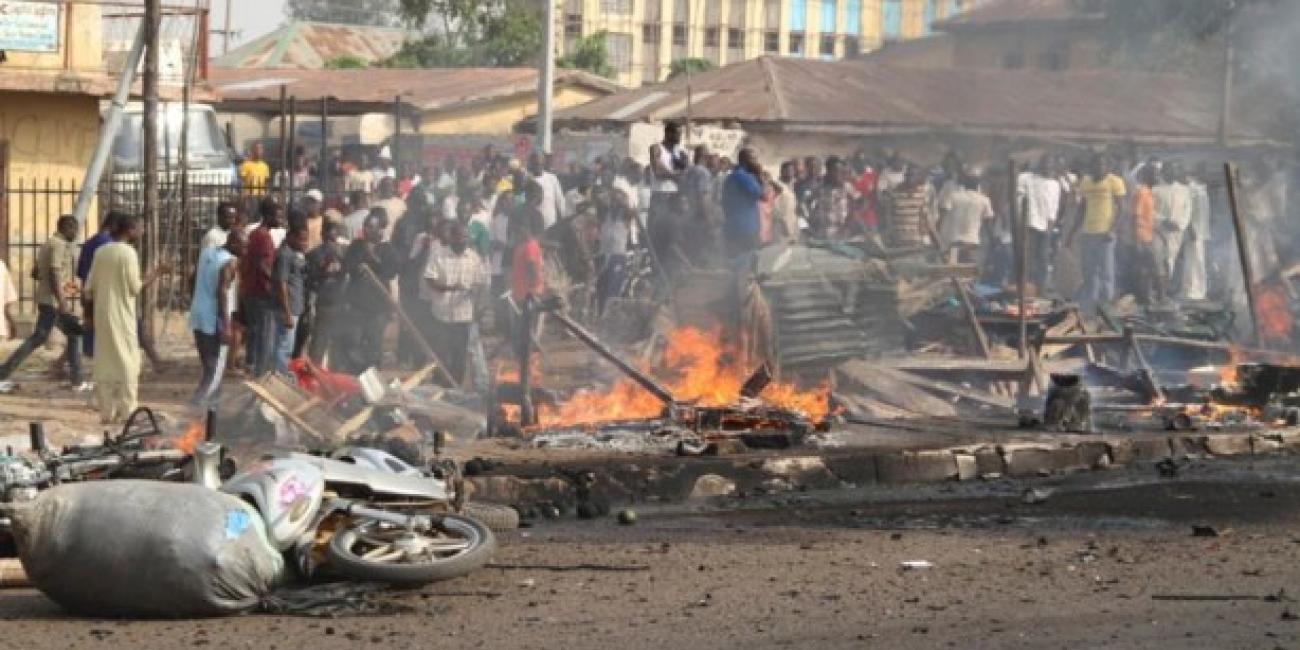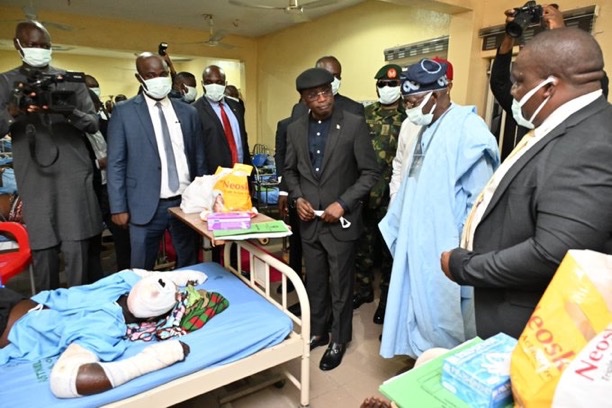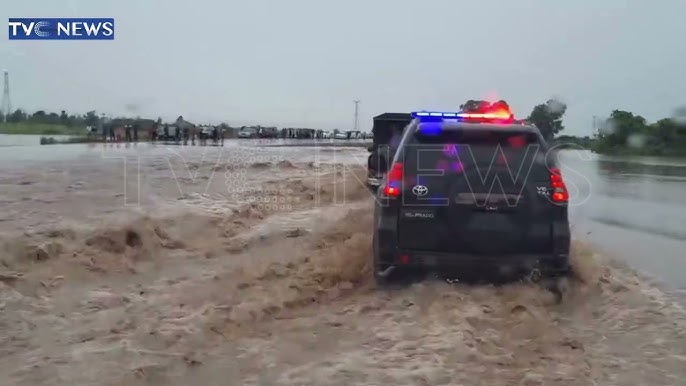On the evening of Friday, June 20, 2025, a devastating suicide bombing rocked a bustling restaurant in Konduga, Borno State, Nigeria, with the tragic aftermath reported on Saturday, June 21, 2025. The attack, which occurred around 8:30 PM local time, killed at least 10 people and injured dozens more, though some sources estimate the death toll could be as high as 24. The explosion, caused by a suspected female suicide bomber, targeted a popular local eatery frequented by residents and traders, plunging the community into grief and fear.
The blast site, described as a fish market-cum-food joint near the Konduga main motor park, was crowded with patrons at the time of the attack. Eyewitnesses reported a scene of chaos as the explosion tore through the area, leaving bodies strewn across the ground and survivors fleeing in panic. The intensity of the blast caused significant structural damage to the restaurant and nearby shops, with debris scattered across the vicinity, complicating rescue efforts.
Emergency response teams, including the Nigerian Army, Borno State Police, and members of the Civilian Joint Task Force (CJTF), arrived swiftly to secure the area and assist victims. The injured, many of whom sustained severe burns and shrapnel wounds, were rushed to nearby medical facilities, including the University of Maiduguri Teaching Hospital and Konduga General Hospital. Medical personnel worked tirelessly through the night to treat the casualties, with some patients requiring urgent surgical intervention due to the severity of their injuries.
No group has officially claimed responsibility for the attack, but security analysts point to the likely involvement of Boko Haram or its splinter faction, Islamic State West Africa Province (ISWAP). Both groups have a long history of targeting civilian spaces in Borno State, using suicide bombings to sow terror and destabilize communities. The use of a female bomber aligns with tactics frequently employed by Boko Haram, which has increasingly relied on women and young girls to carry out such attacks since the insurgency began in 2009.
The Konduga bombing is the latest in a series of violent incidents in Borno, a state at the epicenter of Nigeria’s 16-year-long insurgency. The conflict, which has claimed over 35,000 lives and displaced more than 2 million people according to United Nations estimates, continues to exact a heavy toll on civilians. Recent months have seen a resurgence of attacks, including raids on villages, ambushes on military convoys, and bombings in public spaces, underscoring the persistent challenge faced by Nigerian security forces.
Local authorities have condemned the attack, with Borno State Governor Babagana Zulum expressing condolences to the victims’ families and vowing to strengthen security measures. The police have deployed additional personnel to Konduga and other vulnerable areas, while the military has intensified patrols and intelligence-gathering operations to prevent further attacks. Community leaders, however, have called for greater collaboration between security agencies and residents to curb the insurgency’s spread.
Residents of Konduga, many of whom have endured repeated attacks over the years, expressed a mix of anger and despair in the wake of the bombing. One survivor, a local trader named Musa Ibrahim, recounted losing two friends in the blast and described the pervasive fear that now grips the town. Despite the tragedy, some community members vowed resilience, emphasizing their determination to rebuild and continue their daily lives.
The attack has renewed calls for international support to address the humanitarian crisis in northeastern Nigeria. Aid organizations, already stretched thin by the region’s ongoing conflict and food insecurity, have appealed for increased funding to assist displaced persons and bombing victims. The United Nations Office for the Coordination of Humanitarian Affairs (OCHA) reported that over 8.4 million people in Borno, Adamawa, and Yobe states require humanitarian assistance in 2025, a figure likely to rise as violence persists.
Security experts warn that the insurgency’s adaptability, including its use of improvised explosive devices (IEDs) and suicide bombers, poses a significant challenge to counterterrorism efforts. The Nigerian government has invested heavily in military operations, including the Multinational Joint Task Force (MNJTF) with neighboring countries, but critics argue that more needs to be done to address the root causes of the conflict, such as poverty, unemployment, and lack of education. Without comprehensive strategies, they caution, the cycle of violence is likely to continue.
The Konduga bombing serves as a grim reminder of the enduring threat posed by Boko Haram and ISWAP in Nigeria’s northeast. As investigations into the attack continue, authorities are under pressure to bring perpetrators to justice and restore a sense of safety to the region. For now, the people of Konduga mourn their losses while bracing for an uncertain future in a conflict that shows no signs of abating
.
The Nigerian government has faced criticism for its handling of the insurgency, with some analysts pointing to intelligence failures and inadequate protection of civilian targets. In response, the military has pledged to review its strategies and enhance coordination with local vigilante groups like the CJTF, which have played a critical role in repelling attacks. However, the growing sophistication of insurgent tactics, including the use of drones and encrypted communication, has complicated these efforts.
Humanitarian agencies are also grappling with the fallout from the attack, as the influx of injured and displaced persons strains already limited resources. The World Health Organization (WHO) has deployed mobile medical teams to Konduga to support local hospitals, while the International Committee of the Red Cross (ICRC) is providing psychological counseling to survivors. These efforts, while critical, highlight the broader challenge of delivering aid in a region where insecurity restricts access to vulnerable populations.
The international community has reiterated its support for Nigeria’s fight against terrorism, with the United States and European Union condemning the attack and pledging continued assistance. However, diplomatic sources indicate that competing global crises, including conflicts in the Middle East and Eastern Europe, have diverted attention and resources from the Sahel region, leaving Nigeria to shoulder much of the burden. Regional cooperation through the Lake Chad Basin Commission remains a key pillar of the counterinsurgency strategy, but cross-border coordination has been hampered by logistical and political challenges.
As Konduga begins the painful process of recovery, the bombing has reignited debates about the effectiveness of Nigeria’s security policies and the need for a holistic approach to ending the insurgency. Civil society groups are advocating for increased investment in community development and deradicalization programs to prevent youth recruitment by extremist groups. These initiatives, they argue, could complement military efforts and offer a path toward lasting peace.
For the victims’ families, however, such discussions offer little immediate solace. Funerals for the deceased began on Saturday, with mourners gathering under tight security to pay their respects. The tragedy has left an indelible mark on Konduga, a town that has endured more than its share of suffering in Nigeria’s protracted war against terror.




